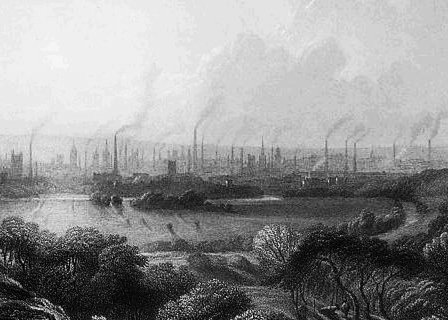Something I’ve been thinking about a lot in the current battle over the future of (pseudo) AI is the cotton gin.
I live in a country where industrial progress is always considered a positive. It’s such a fundamental concept to the American exceptionalism claim that we are taught never to question it, let alone realize that it’s propaganda.
One such myth, taught early in grade school, is the story of Eli Whitney and the cotton gin. Here was a classic example of a labor-saving device that made millions of lives better. No more overworked people hand cleaning the cotton (slaves, though that was only mentioned much later, if at all). Better clothes and bedding for the world. Capitalism at its best.
But that’s only half the story of this great industrial time saver. Where did those cotton cleaners go? And what was the impact of speeding up the process?
Now that the cleaning bottleneck was gone, the focus was on picking cotton as fast as possible. Those cotton cleaners likely, and millions of other slaves definitely, were sent to the fields to pick cotton. There was an unprecedented explosion in the slave trade. Industrial time management and optimization methods were applied to human beings using elaborate rule-based systems written up in books. How hard to punish to get optimal productivity. How long their lifespans needed to be to get the lost production per dollar. Those techniques, practiced on the backs and lives of slaves, became the basis of how to run the industrial mills in the North. They are the ancestors of the techniques that your manager uses now to improve productivity.
Millions of people were sold into slavery and worked to death *because* of the cotton gin. The advance it provided did not, in fact save labor overall. Nor did it make life better overall. It made a very small set of people much much richer; especially the investors around the world who funded the banks who funded the slave purchases. It made a larger set of consumers more comfortable at the cost of the lives of those poorer. Over a hundred years later this model is still the basis for our society.
Modern “AI” is a cotton gin. It makes a lot of painstaking things much easier and available to everyone. Writing, reading, drawing, summarizing, reviewing medical cases, hiring, firing, tracking productivity, driving, identifying people in a lineup…they all can now be done automatically. Put aside whether it’s actually capable of doing any of those things *well*; the investors don’t care if their products are good, they only care if they can make more money off of them. So long as they work enough to sell, the errors, and the human cost of those errors, are irrelevant. And like the cotton gin, AI has other side effects. When those jobs are gone, are the new jobs better? Or are we all working that much harder, with even more negative consequences to our life if we fall off the treadmill? One more fear to keep us “productive”.
The Luddites learned this lesson the hard way, and history demonizes them for it; because history isn’t written by the losers.
They’ve wrapped “AI” with a shiny ribbon to make it fun and appealing to the masses. How could something so fun to play with be dangerous? But like the story we are told about the cotton gin, the true costs are hidden.



